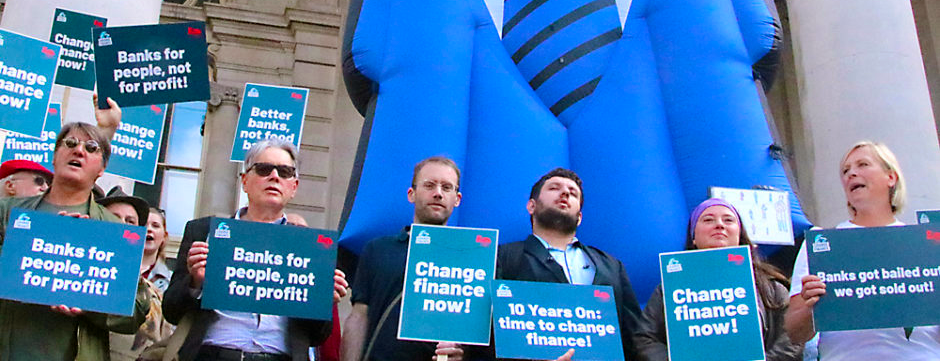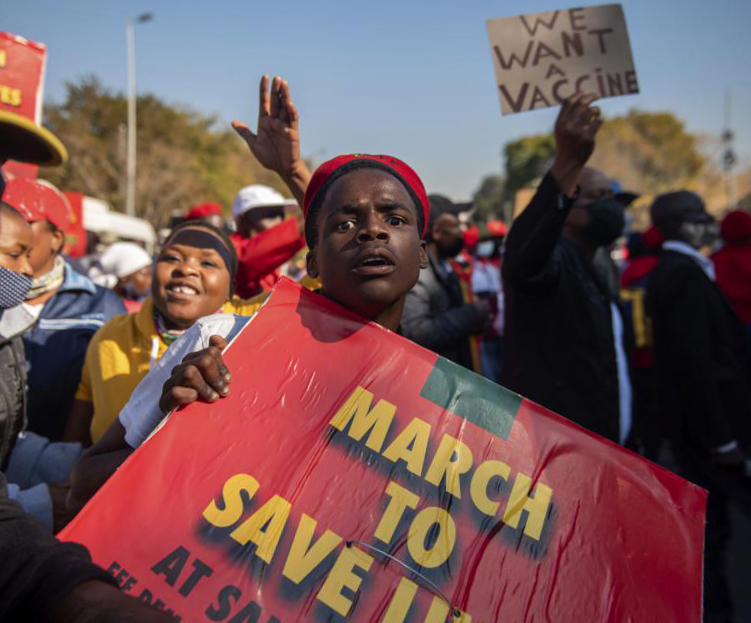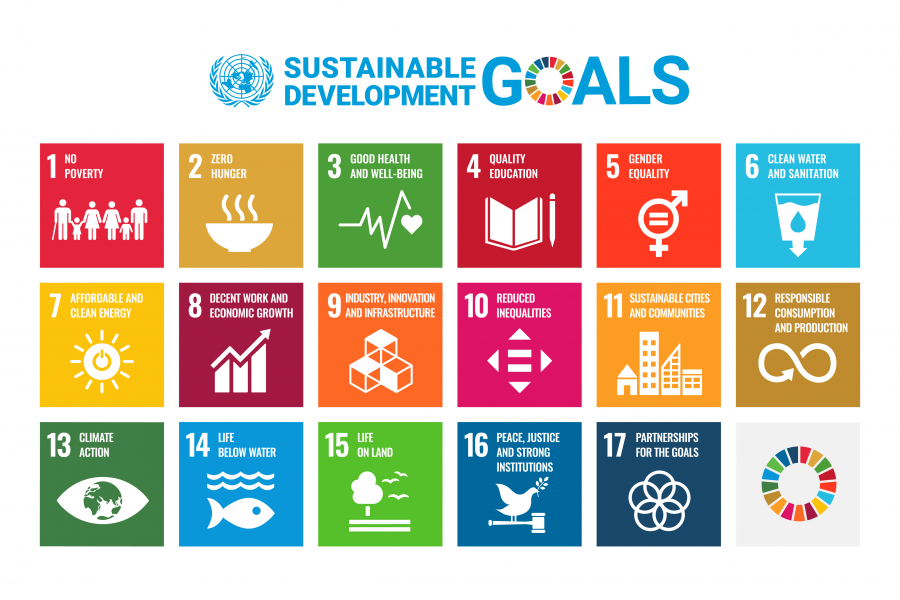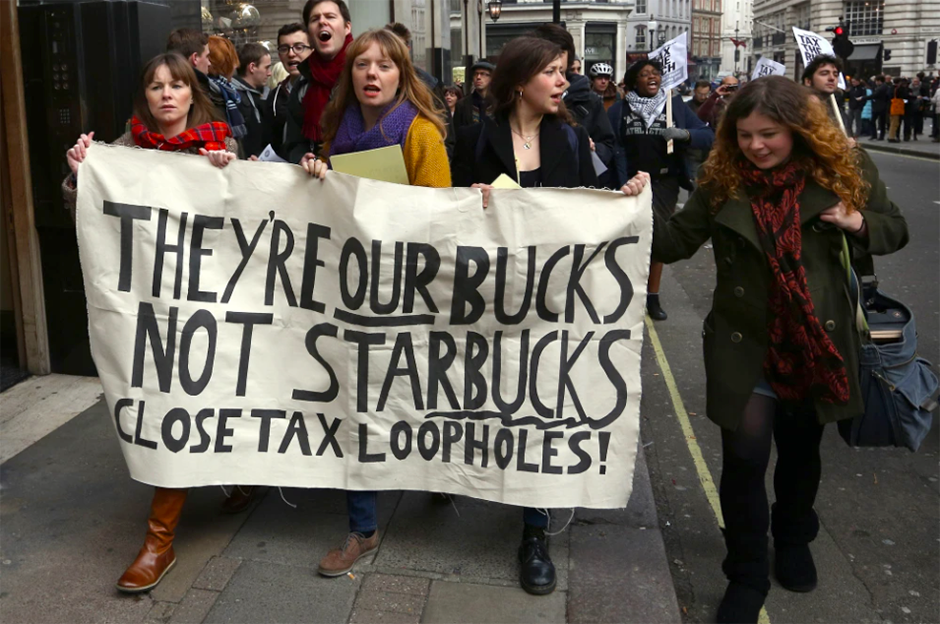Contents (go to): Who are we? ¦ What is Financial Justice? ¦ What did we do? ¦ Why? ¦ More Information ¦ Appendix
This is a student project which was carried out as part of our course work for a University Wide Module UW0012 Global Citizenship and Development Education, run by the Praxis Project and the School of Education. Course lecturer was Dr Gertrude Cotter.
Who are we?
Ruth – A mature student at UCC, returning to education to gain a Diploma in speciality food production.
Steph – A UCC Master’s student in her final year of Human Resource Management.
Ali – A mature student studying about climate change.
Caroline – An arts student at UCC
Lowan – A French Erasmus student in his first year of master in Politics and Economics.
Lucy – Post-Primary Teacher of Irish & Business and UCC Graduate
What is Financial Justice?
The basic idea behind Financial Justice is that the rich keep getting richer, and the poor keep getting poorer, and how we can put an end to that by moving towards a fairer financial system.

What did we do?
Our project involved the creation of a radio show talking about various aspects of financial justice. We chose to primarily focus on a brief introduction, a condensed synopsis of historical events, and three key areas that many radio listeners would probably be familiar with from both local perspective and global perspectives; environmental concerns, national debt, and the UN’s Sustainable Development Goals.
Whilst there are many avenues we could have researched for this project; these made the most sense to cover in a short radio programme that would reach audiences who may or may not be familiar with this topic and how they could go about making a difference locally.
Why did we research Financial Justice?
Ruth
My original qualifications were in Accountancy so when the option arose to explore what it means to be a global citizen in the context of financial justice, I thought that’s an area I could really get stuck into. While studying accountancy & business originally, there was little reference to financial justice or injustice in the world and yet when you pull back the layers to see the financial system and its inherent biases, it’s amazing we don’t study it.
Going into the project I would say I had little understanding of financial justice beyond a general understanding that Third World Debt cripples their development, quickly I learned there was so much more to learn. I was also excited by the opportunity to explore radio/podcasting as a media source. This hugely popular media is certainly I way I enjoy consuming new information so I wanted to see behind the curtains on how podcasting works.
Overall, I really learned a lot during this project about financial justice, podcasting in general and team work. The team at Financial Justice Ireland and Campus Radio really gave us the tools to dig deep into this subject and create a compelling piece of media that might evoke a sense of curiosity or action in others in relation to global financial justice.
Steph
I wanted to learn more about global citizenship and what I could do personally and through my role in Human Resources. Through learning about Financial Justice, I discovered some shocking things! I didn’t realise the unbreakable loop around debt cancellations as an example or the inequities rising from Covid-19 vaccine distributions. I wanted to do more to bring these issues to light and this was a great opportunity.
I was initially really worried about doing a radio programme, especially in case I came off as very boring to listen to. I learned lots of useful skills and tools, not only to create an interesting radio programme, but on working as a team and looking deeper into issues. I can do more learning about these issues and finding a different way to share these with others has been both informative and humbling, and has inspired me to find new ways to be a better global citizen.

Ali
For me this module/course was very good, I learned a lot of things, that I was not aware of before, for example, one interesting thing I learned from previous colonialism after the country left the colonialism countries, they left few resources such as doctors, lawyers, some countries only had one lawyer and 12 doctors in the whole countries, colonialism, was for only to benefit the country in power. Also learning how the richest people are causing the most damage to the planet, yet pay the least price, have more money, less debt problem to worry about, compared to the middle class or lower-income class people.
I think this course is important in teaching us what happening around the world, what going on in our world, we need to be aware, help to make this world more equal and justice world for all, even for ourselves we need to spend less, and reflect on spending the correct way and supporting others, be more climate-friendly and sustainable. I thought this course was really good and needs to be introduced in every college and school, workplace as a continuous course, so we can understand to make the world a better place for people/animals.
Caroline
As a humanities student I have learned a great deal about societal issues and international relations so far in my degree. However, I was interested in delving deeper into global and local economic inequalities and, in particular, how and why these financial injustices are being maintained. During the financial justice workshops, I was struck by Caroline Murphy’s critique of the United Nations Sustainable Development Goals (SDGs) and how they fall short of addressing global economic issues. With this in mind, I decided to implement the SDGs as a theoretical perspective for our group research project.
Using a critical lens, I researched the SDGs and found a number of reports positing that the design and implementation of the goals do not address the underlying causes of global financial injustices, namely the prevailing system of neoliberalism. This was a significant finding in a research project as it highlighted that the primary framework for addressing global inequalities (the SDGs) will not only fall short of reaching targets but allow global economic disparities to remain intact.
Before enrolling in the GCDE course I was aware of the 17 SDGs and how they are a visionary blueprint for ensuring a sustainable and equitable future for all global citizens. However, I quickly became aware that this is considered a ‘soft’ view of the goals, which fails to critically analyse the framework’s design in not addressing the underlying processes of the neoliberal system. Now that I am aware of the soft and critical perspectives to global citizenship, I hope to implement this knowledge across my degree coursework to critical analyse the processes which maintain global inequalities.

Lowan
I’ve selected Financial Justice because it is linked to what I had studied in economics and politics. The topic nowadays is a really serious one as wealth inequalities keep rising and nothing seems to have changed while the Covid crisis has only made the situation turn even worse; rich people are getting wealthier and poor people are suffering from poverty. I’ve studied the origins of wealth inequality between countries for instance in Economics from a theoretical point of view and I think the topic of Financial Justice was a really good way to put into practice what I’ve learned. Finally, everyone is sensitive to the issue of inequality and even more in our current world where money runs everything. Consequently, I wanted through choosing this topic to be able to bring concrete solutions to wealth inequality and how concretely we could reach financial justice.
Lucy
In participating in this CPD module and group project I hoped to become further educated in global citizenship and development education to support my professional development and my role as a post-primary business teacher, who discusses financial issues in classes on a regular basis.
On reflection of this module, I have had the opportunity to listen to a wide range of conflicting views on the issues surrounding global citizenship and development education, in particular the role of financial justice. Through our workshops and radio show research, I critically considered and challenged my prior knowledge of the topic and gained a stronger understanding of financial justice, which I look forward to creatively incorporating to my classes going forward.

More Information
Links open in a new tab:
Financial Justice Ireland: http://financialjustice.ie/
What is Financial Justice? (video): https://youtu.be/sGS2swYKZqQ
What is econo-what?: https://www.financialjustice.ie/econowha1/what-is-econo-wha/
Neoliberalism, Sustainable Development Goals, and Debt: http://padlet.com/FinancialJusticeIreland/1lcc5j77wcazhew7
Centre for Global Education: https://www.centreforglobaleducation.com/
Defining Financial Justice (video): https://www.youtube.com/watch?v=azk_ObDWkqk
UCC GCDE Module Enrolment: http://reg.ucc.ie/curriculum/modules/?mod=uw0012
Appendix
Audio
Right-click and “Save link as” to download:
Please listen to our radio broadcast (mp3): “Financial justice“.
Or Play to listen to the broadcast:
